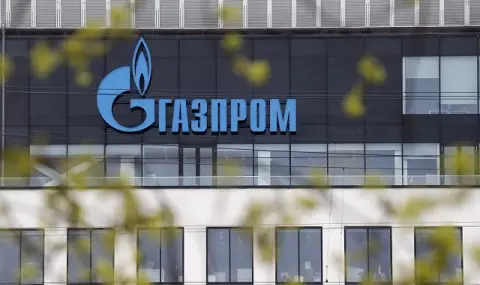Russian gas supplies to Europe via Ukraine are set to end on New Year's Day, bringing the curtain down on Moscow's long period of dominance in European gas supply.
Russia's oldest gas export route to Europe - a pipeline dating back to Soviet times - was due to be closed at the end of 2024 as a five-year transit agreement between Russia and Ukraine expires. Data from the Ukrainian gas transit operator showed on Tuesday that Russia had not requested gas flows for January 1.
The European Union has dramatically reduced its dependence on Russian gas since the outbreak of war in Ukraine in February 2022, seeking alternative gas sources.
The remaining buyers of Russian gas, such as Slovakia and Austria, have arranged alternative supplies and analysts predict minimal impact on the market from the shutdown. European benchmark gas prices settled at 48.50 euros per megawatt-hour on Tuesday, only a marginal increase from when trading opened.
The gas flow halt, however, will have much greater geopolitical significance.
Moscow lost its dominant share of gas supplies to European Union countries to rivals such as the United States, Qatar and Norway after it invaded Ukraine, prompting the EU to reduce its reliance on Russian gas.
Once the world’s largest gas exporter, state-controlled Gazprom is set to post a $7 billion loss in 2023 alone, its first annual loss since 1999. For Europe, the loss of cheap Russian gas supplies has contributed to a major economic slowdown, a spike in inflation and a worsening cost-of-living crisis. Although Europe has quickly found alternative energy sources, the loss of Russian gas has heightened long-term concerns about declining global competitiveness and, in particular, Germany's industrial future. Russia and the Soviet Union spent half a century building up a major share of the European gas market, which at its peak was around 35%, but the war in Ukraine has all but destroyed that business for Gazprom. Most Russian gas routes to Europe are closed, including Yamal-Europe through Belarus and Nord Stream under the Baltic Sea, which was blown up in 2022. The Soviet-era pipeline through Ukraine delivers gas from Siberia through the town of Sudzha - now under the control of Ukrainian soldiers - to Russia's Kursk region. It then passes through Ukraine to Slovakia, where the pipeline splits into branches leading to the Czech Republic and Austria.
Kiev has refused to negotiate a new transit deal.
Ukraine is forgoing about $800 million a year in fees from Russia, while Gazprom will lose nearly $5 billion in gas sales to Europe via Ukraine.
The end of the transit deal is unlikely to lead to a repeat of the 2022 gas price gallop in the EU, as the remaining volumes are relatively small.
Russia has transported about 15 billion cubic meters of gas through Ukraine in 2023 - just 8% of peak Russian gas flows to Europe via various routes in 2018-2019.
Gazprom said it would send 37.2 million cubic meters on Tuesday, compared with 42.4 million cubic meters on Monday. Later, the Ukrainian gas transit operator said that Russia had not declared any gas flows for January 1 through the Ukrainian pipeline to Europe as of 17:00 Bulgarian time.
The suspension of supplies through Ukraine would be a major blow to Moldova, a country that was once part of the Soviet Union.
Hungary and other countries continue to receive Russian gas from the south, through the "Turkish Stream" pipeline along the bottom of the Black Sea, although Hungary was keen to keep the Ukrainian route as well.
